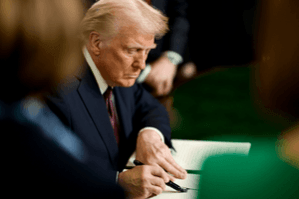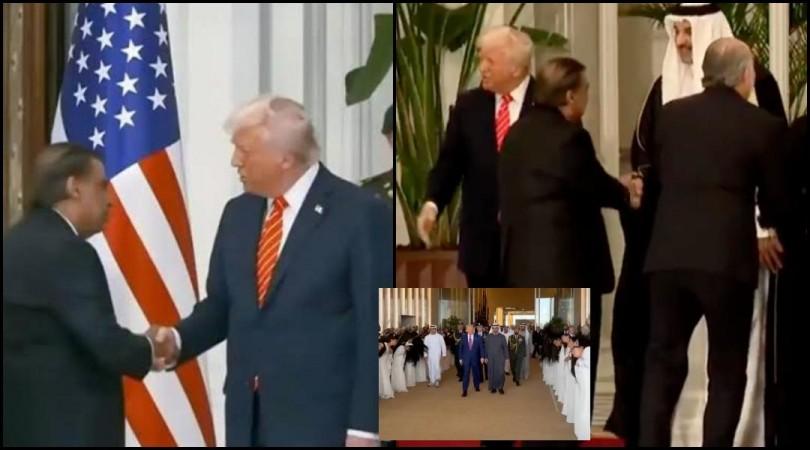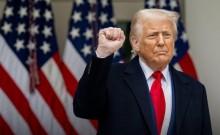
In a significant policy move, U.S. President Donald Trump has signed a proclamation enforcing a travel ban on citizens from 12 countries, while also imposing partial restrictions on seven others. This decision, announced on June 5, 2025, is set to take effect on June 9, 2025. The administration has justified the ban as a necessary measure to safeguard national security, following a recent terror attack in Boulder, Colorado. The attack, which targeted a peaceful rally advocating for the safe return of Israeli hostages from Hamas captivity, was carried out by an Egyptian national who had overstayed his visa.
The countries facing a full travel ban include Afghanistan, Burma (Myanmar), Chad, the Republic of the Congo, Equatorial Guinea, Eritrea, Haiti, Iran, Libya, Somalia, Sudan, and Yemen. Additionally, the proclamation imposes partial restrictions on nationals from Burundi, Cuba, Laos, Sierra Leone, Togo, Turkmenistan, and Venezuela. The administration has cited national security concerns, particularly the risks posed by unvetted foreign nationals and visa overstays, as the primary reasons for these restrictions.
In a video statement released by the White House, President Trump emphasized the need to protect the United States from potential threats. "The recent terror attack in Boulder, Colorado, has underscored the extreme dangers posed to our country by the entry of foreign nationals who are not properly vetted, as well as those who come here as temporary visitors and overstay their visas. We don't want them," Trump stated.
The attack in Boulder, which targeted a peaceful rally calling for the safe return of Israeli hostages from Hamas captivity, was carried out by Mohammed Sabry Solima, an Egyptian national who had overstayed his visa.

Reactions and Criticisms
The travel ban has been met with a wave of criticism from various quarters. Human rights organizations, including Amnesty International USA, have condemned the measure as "discriminatory, racist, and downright cruel," warning that it could fuel misinformation and hate.
The ban has also drawn criticism from political figures, with Congresswoman Pramila Jayapal describing it as an expansion of Trump's previous "Muslim ban" and a move that would further isolate the United States on the world stage. "Banning a whole group of people because you disagree with the structure or function of their government ... lays blame in the wrong place," Jayapal stated.

The decision has also strained U.S. relations with several countries, particularly in Africa. The Somali ambassador to the United States, Dahir Hassan Abdi, expressed Somalia's willingness to engage in dialogue to address the security concerns raised by the U.S.
"Somalia values its longstanding relationship with the United States and stands ready to engage in dialogue to address the concerns raised," Abdi said. However, the move is seen as a further worsening of U.S.-Africa relations, which have already been strained by recent tariffs imposed by the Trump administration on African countries.
This travel ban is reminiscent of the controversial travel restrictions imposed by Trump during his first term in office. In 2017, the administration issued a travel ban targeting seven majority-Muslim countries, including Iran, Iraq, Libya, Somalia, Sudan, Syria, and Yemen.
The move faced numerous legal challenges and was eventually repealed by President Joe Biden after he assumed office in 2021. The current ban, while broader in scope, echoes the same national security concerns that were cited in the previous iteration.
Impact on U.S. Relations and Domestic Politics
The travel ban has significant implications for U.S. foreign relations, particularly with countries in Africa and the Middle East. The decision to include countries like Afghanistan, which is under Taliban rule, and Iran, a state sponsor of terrorism, reflects the administration's focus on regions perceived as high-risk.
However, the exclusion of Egypt, despite the Boulder attack being carried out by an Egyptian national, has raised questions about the criteria used to determine the list of banned countries.
Domestically, the travel ban has become a contentious issue in the political landscape. The administration has used the ban to criticize the immigration policies of former President Joe Biden, blaming them for the Boulder attack and other security threats.
"In the 21st century, the country has witnessed one terror attack after another carried out by foreign visa stayers from dangerous places," Trump stated, attributing these incidents to Biden's "open-door" policies.

















